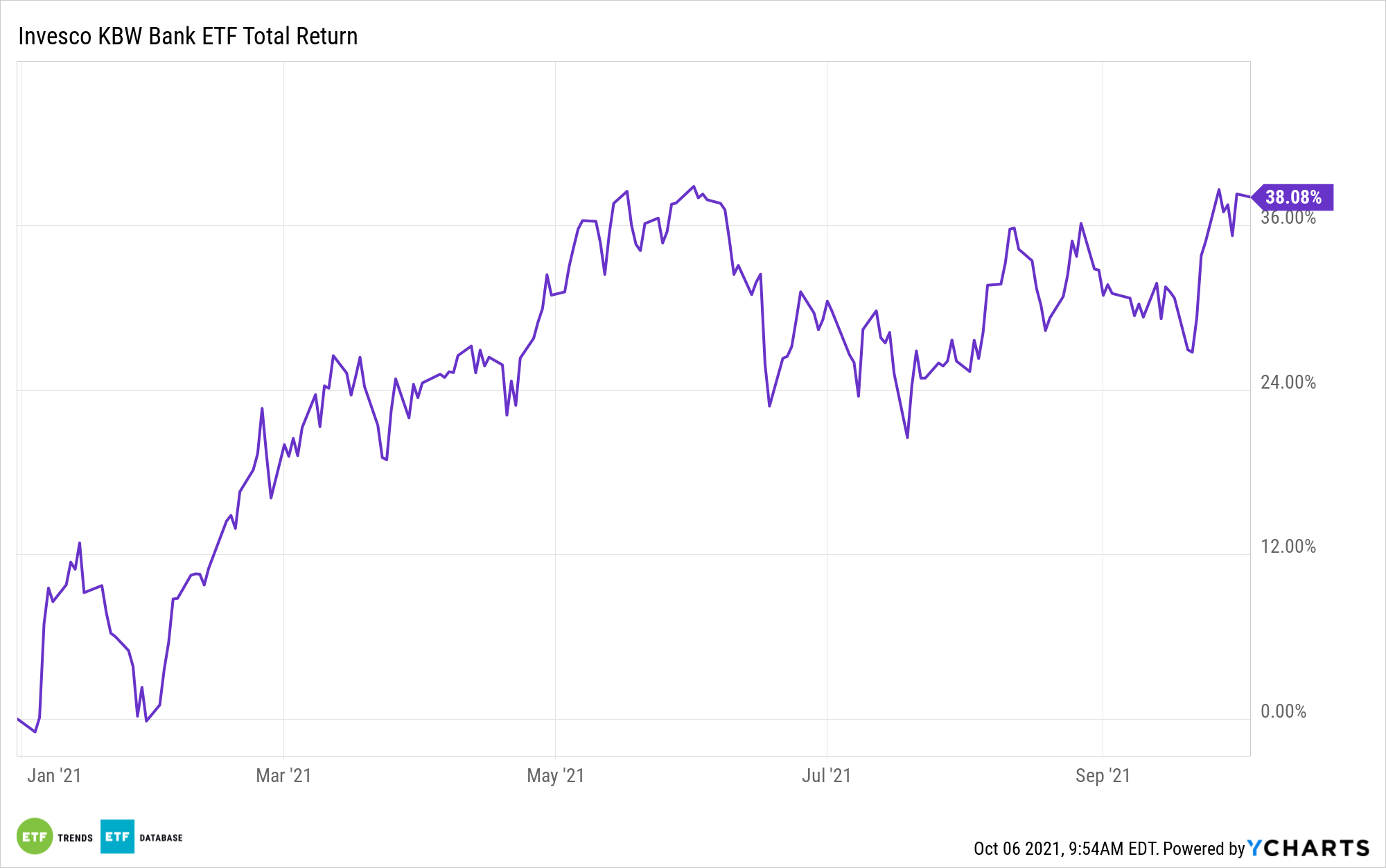As its name implies, the Invesco KBW Bank ETF (NASDAQ: KBWB) is an exchange traded fund focusing on bank stocks.
With that in mind, many investors aren’t likely to look at KBWB or comparable bank ETFs and think that they are credible destinations for environmental, social, and governance (ESG) investing principles. They might want to think again.
KBWB, which tracks the KBW Nasdaq Bank Index, is home to 26 stocks. Among those holdings are the largest domestic banks, many of which are increasingly prioritizing ESG. In fact, a case can be made that banks are important players on the ESG stage because they must balance meeting investors’ desire for returns while managing risk by not engaging with potential ESG-offending companies or drawing the ire of large investors by not being proactive on the ESG front.
“As ESG factors become increasingly entrenched into banks’ business practices and capital allocation frameworks, granular and forward-looking data have exponentially increased in importance, as has the need for technology to source, collect and interpret complex information,” said Fitch Ratings in a recent report.

How Banks Are Responding
KBWB holdings are flexing ESG muscles in various ways, though one of the more effective avenues is to simply jettison exposure to certain industries with potential ESG vulnerabilities.
“Banks historically have taken a divestment-first approach to controversial sectors such as fire arms, private prisons, arctic drilling, pharmaceuticals and fossil fuels,” adds Fitch. “However, many banks are now taking an engagement-oriented approach with companies in addressing social and environmental considerations, before potentially divesting of specific activities in various sectors.”
While not lending to traditional companies appears to fit the bill as ESG-aware, some politicians are concerned that banks shouldn’t be eschewing loans to the energy industry, particularly at a time when it’s clear that there are still lumps to be worked through with renewable energy, and backup/transition sources, such as natural gas, are still needed.
Banks can also burnish ESG credentials by issuing or underwriting green and social bonds, which is happening today, but there’s still work to be done, indicating that there’s a potentially lengthy runway for KBWB to become a more credible ESG idea in the years ahead.
“Despite increasing disclosure around ESG factors, banks continue to be challenged by a disparity or a lack of robust and granular forward-looking data for their borrowers and counterparties. This also makes it difficult to assess and report on their ESG frameworks. While data and taxonomy will likely coalesce around industry standards over time, banks need to prepare for increased data and disclosure demands from stakeholders,” notes Fitch.
For more news, information, and strategy, visit the ETF Education Channel.
The opinions and forecasts expressed herein are solely those of Tom Lydon, and may not actually come to pass. Information on this site should not be used or construed as an offer to sell, a solicitation of an offer to buy, or a recommendation for any product.








